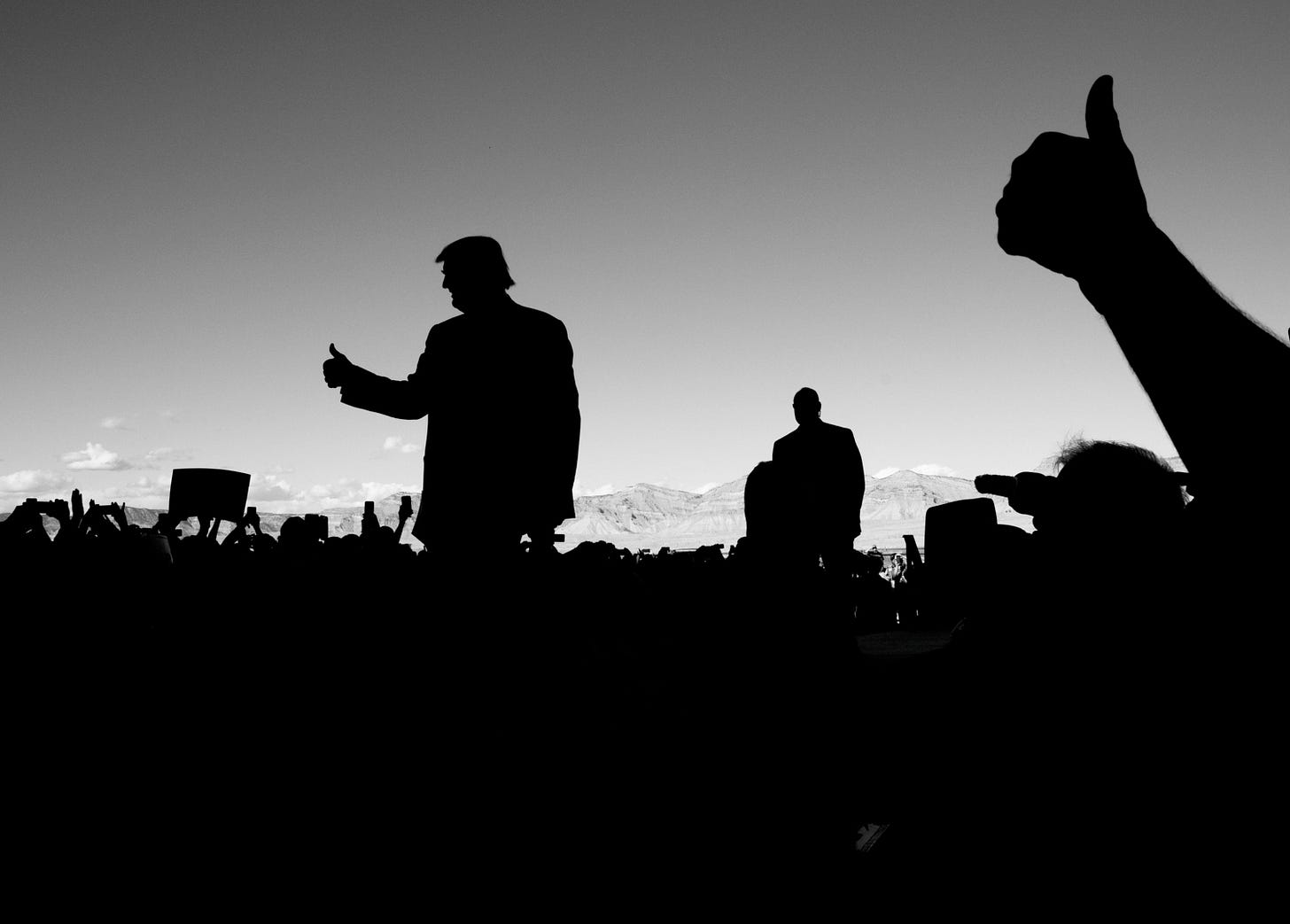What If Trump Declared an Election Emergency?
The president’s embrace of unilateral executive action and his attack on the reliability of the coming election could combine in a constitutional cataclysm.

President Trump’s executive orders from last weekend on COVID-19-related economic relief didn’t actually accomplish what the White House suggested they did. But they did provide more evidence of the president’s penchant for acting by executive order. Taken together with his national emergency declaration (the legality of which is still awaiting review by the Supreme Court) , his July 30 tweet about postponing the November elections, and the responses of the Department of Justice and Department of Homeland Security to protests in Washington, D.C., and Portland, Oregon, the president’s embrace of unilateral executive action raises a troubling question: What if he simply declares a national emergency and orders the delay? Under the Constitution, he can’t legally cancel or delay the November elections, but he could issue an order or executive memorandum instructing or advising the states to do so. Even if many states resisted or ignored the order, here’s how this might be enough to disrupt the voting process and keep him in power.
Under the Constitution, state electors (rather than state voters) actually choose the president and vice president. Since the Civil War, virtually all states have chosen their electors by popular vote, but the Constitution doesn’t require it. During the republic’s early years, many states appointed their electors, with the process typically in the hands of the state legislature and governor. An individual state could revert to this antiquated procedure at any time. In many cases, it would require only a majority vote of the legislature and the approval of the governor to change the relevant provisions of the state’s election laws.
As a practical matter, this is unlikely to happen. But suppose that, in response to the pandemic and an order (official or unofficial, legal or otherwise) from Trump, Republican-led states opted to replace popular elections with the direct appoint of electors. Trump, Attorney General Bill Barr, and other Republican partisans have already begun promoting the idea that elections conducted predominantly through the mail are automatically untrustworthy. If that’s true, it’s incumbent on Republican state legislators and governors to appoint electors who really represent the will of the people, instead of the specious vote totals, don’t you see?
Most of the states in question would likely vote for Trump anyway, but not all. Republicans control both houses of the legislature and the governorship in Florida, Arizona, Ohio, Iowa, and Georgia, which are potentially up-for-grabs in 2020. Put even a couple of these into Trump’s column by legislative fiat, and potentially add Wisconsin, where the Republican-led legislature and state supreme court seem to get their way over the Democratic governor’s objections, and Trump stands a much better chance of amassing enough electoral votes to win re-election.
The president does not need to cancel or delay the elections to retain power. His order to politically friendly state governments might suffice. While Republicans in state capitols around the country might fall over themselves to fulfill the president’s quasi-authoritarian wishes, the order could undermine the elections elsewhere as well. Voters might be uncertain whether to vote and some Republican local elections officials in Democratic-led states might refuse to open polling places or count ballots. Protests might break out in the streets, which would, in some places, doubtless escalate into riots as such gatherings tend to do. But this would only play into the president’s hands by underscoring the sense of emergency without protecting the normal administration of elections.
Neutralizing the November elections by failing to certify the results or waging protracted legal battles that delay the outcome of the election until after the beginning of the new government could also help preserve the Republican majority in the Senate. In Arizona, Iowa, and possibly Georgia, Democratic challengers threaten to capture Republican-held Senate seats. Without certified election results in those states by January 3, the task of filling the Senate vacancies would fall to the governors, who are Republicans and would presumably choose members of their own party. It might seem un-American, but it’s arguably constitutional.
Manipulations of this sort would do serious and possibly irreparable damage to the constitutional union. The rule of law works in America because we supplement the Constitution with agreed norms that make it work, like holding fair elections and respecting the results. Take those away, and the compromises woven into the Constitution (like the Electoral College and state-based Senate) become untenable.
Though the Founders never envisioned the sort of political partisanship now tearing at the seams of our republic, many did warn against the awesome and abuse-prone power of the presidency. Benjamin Franklin, on the last day of the Constitutional Convention, warned that though the new government “is likely to be well administered for a course of years,” it “can only end in Despotism, as other forms have done before it, when the people shall become so corrupted as to need despotic Government, being incapable of any other.”
Let’s hope that Franklin was wrong, and that the abuses and transgressions of our government are not merely reflections of our own flaws. Let’s hope that officials of the federal government and the states, sworn to follow the Constitution, know when to ignore an order from which it might never recover.

